Well hello again! I am a soap maker from wild Russia. In my last post I wrote about the dangers of mass-market soap, and today I want to tell about natural soap, what is that mean, and what it is made of.

Choosing a quality product for yourself, you can get lost in names like: “handmade soap”, “natural soap”, “eco-soap”, “organic soap”, “soap from scratch”. What is hidding under the labels indicating naturalness?
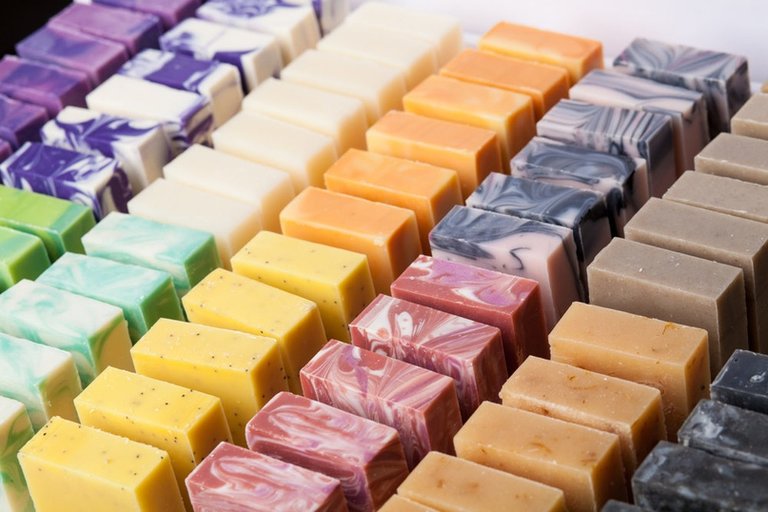
So, today on the Russian market you can see several options for soap, maybe it is actual for your country too:
1/) Usual factory soap with an inscription "natural handmade soap."
It is selling on shelves with ordinary soap, but it has a label with the inscription: "natural". In some cases it has a completely natural composition, but basically it is a classic set of surfactants with a promising label: "natural".
2/) Handmade soap from industrial soap base.
The most common option that can be found on sale with the label "Handmade Soap" is the soap from the prepared base. The base contains the same surfactants, frothers and melters, and for its manufacture, as a rule, used one of the cheapest oils - coconut and palm. This soap is undoubtedly much better than usual industrial soap, and yet it cannot be called natural. As a rule, all soap makers start making soap from a prepared industrial base. It is enough to melt it, add the caring oil, colors and aromas, pour it into molds and the soap is ready! If you like to buy a soap in the form of flowers, soap cakes, animals, angels and all sorts of different things, then most likely it is not a 100% natural soap. Although sellers loudly declare that it is natural and harmless.
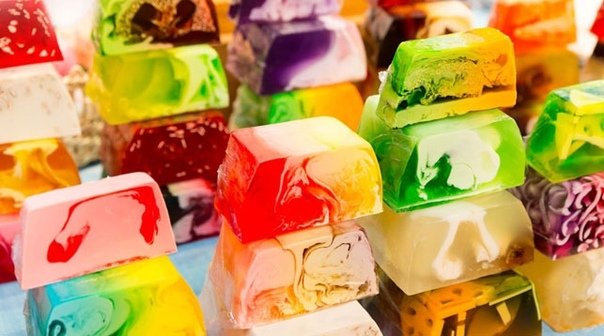
3/) Natural handmade soap, made from scratch.
The composition of this soap will be indicated like: "saponified oils" (coconut, palm, olive), or "sodium salts of the fatty acids of such-and-such oils" or "higher salts of the fatty acids of the oils." All these formulations indicate that the basis of the soap - natural vegetable oil.
From scratch, it means, without surfactants, without foundations, without any other unnecessary things - only vegetable oils and lye. The oils going through a saponification process with lye, as a result of which salts of fatty acids and glycerin are formed. In a properly made finished soap from scratch there is no lye! That soap can be confidently called 100% natural. The cost of this soap can not be low due to the cost of raw materials and cooking technology.

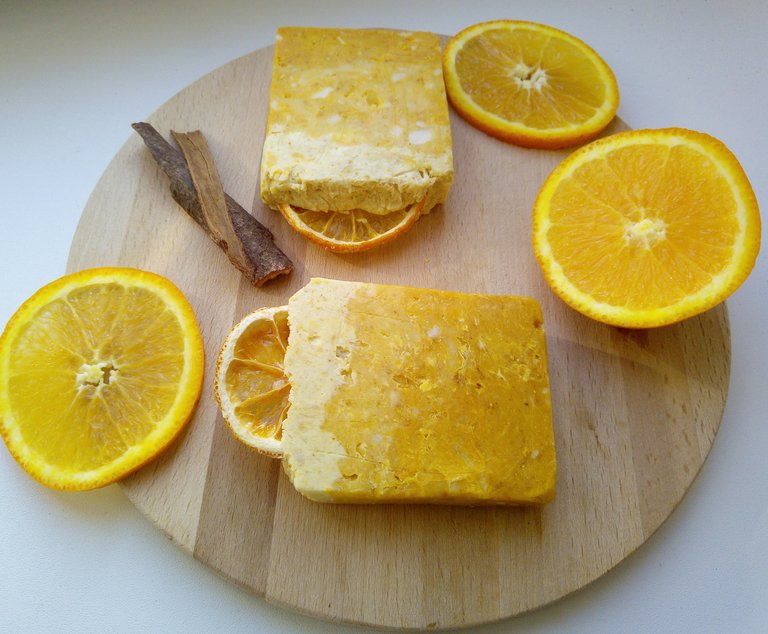
There are two main technologies for making that soap: cold and hot. With the cold process, the oils are measured in certain proportions and heated to their melting temperature, the lye is diluted with water, which sett off the natural reaction of its heating. Then, when both of mixtures reached the same temperature, the oils are being mixed with lye at high speed, and then a soapmaker is adding fragnances, colorants and care ingredients and the mixture is poured into molds. The next 3-6 weeks soap ripens like a baby in the womb, after which it is ready for use. The disadvantage of this method is the thing during the ripening process the lye interacts with the oils and all the components. Something can react with something, many essential oils evaporate, and one can never say (without analysis in the laboratory) which of the fatty oils became soap, and which remained as caring components. A plus of cold process is a soap turns out smooth, even, this method allows you to create interesting color patterns and transitions.
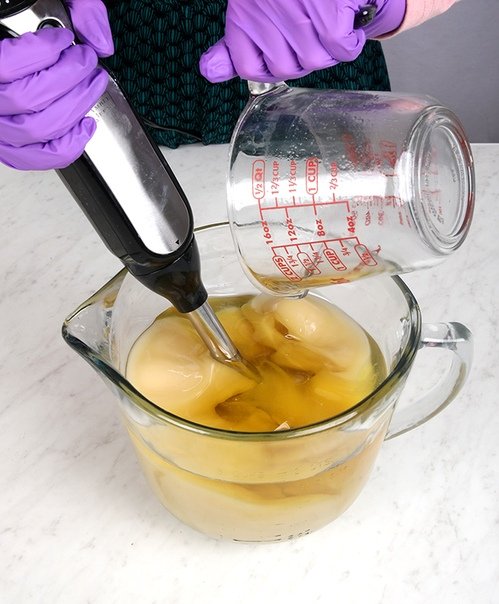
In the hot process, after adding lye to the oils and mixing, the mixture is placed in a water bath and cooked for several hours until it wiil be ready. Then the so-called “superfat” (SF, SF) is being added (the percentage of nourishing oils that do not react with lye), also fragnances, colors are being added and then the mixture are pouring into the mold. The very next day such a soap can be used, because there is no longer any free lye in such a soap. This method allows you to better keep the properties of all active components, because they are not affected by lye or high, prolonged temperature. The truth is to this soap is more porous and it is difficult to put it into decorative form, because the mass is quite thick, so it can usually be found only in the form of slice bars, it can have irregular edges and a bit loose texture. Connoisseurs understand that a real diamond does not require a rim, and find beauty in this outward simplicity, with a very rich content.
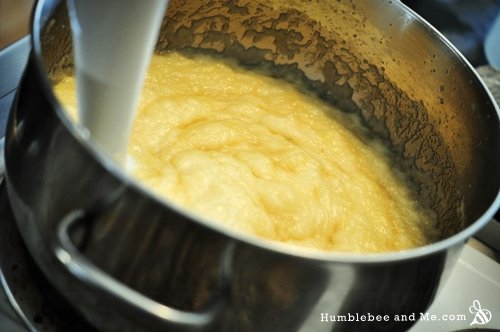
Additional ingredients
Instead of water, herbal teas, fruit and vegetable juices may be included, and in addition to base oils, plant oil extracts and natural components can be used: essential oils, honey, milk, cream, coffee, vegetable and berry puree, beeswax, algae, spices, herbs, oatmeal, hydrolats, clay, etc.
As colours, natural components can be used, such as: juices, decoctions, oils, spices, clays and others. The disadvantage of this method is that the color can be unattractive and fade with time, so many soapmakers use colorants.
For aromatic qualities and to increase the caring properties, soapmakers add essential oils, but they are also add the perfumes, since they have a more persistent fragrance and amaze with their diversity.
.jpg)
In addition, I want to say: listen to your body. How does your skin react to a new product? It is soft, or there is a feeling of dryness? How do you like a foam, and how does this bar of soap lie in your hand? What kind of emotions do you feel from this fragrance? Approach body care clever, because you will be living in this body at least 80 years old! I wish you to be its sculptor.

I will be glad for new subscribers and comments!
Congratulations @dianabirdy! You received a personal award!
You can view your badges on your Steem Board and compare to others on the Steem Ranking
Vote for @Steemitboard as a witness to get one more award and increased upvotes!